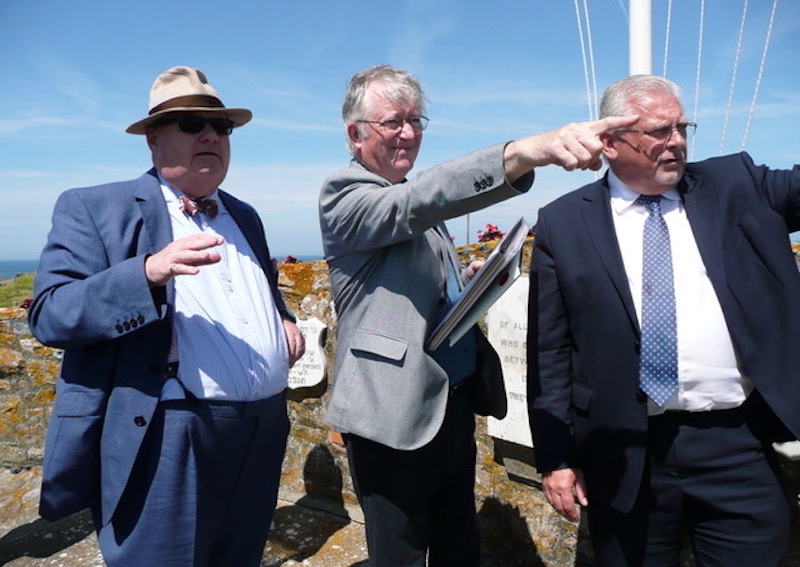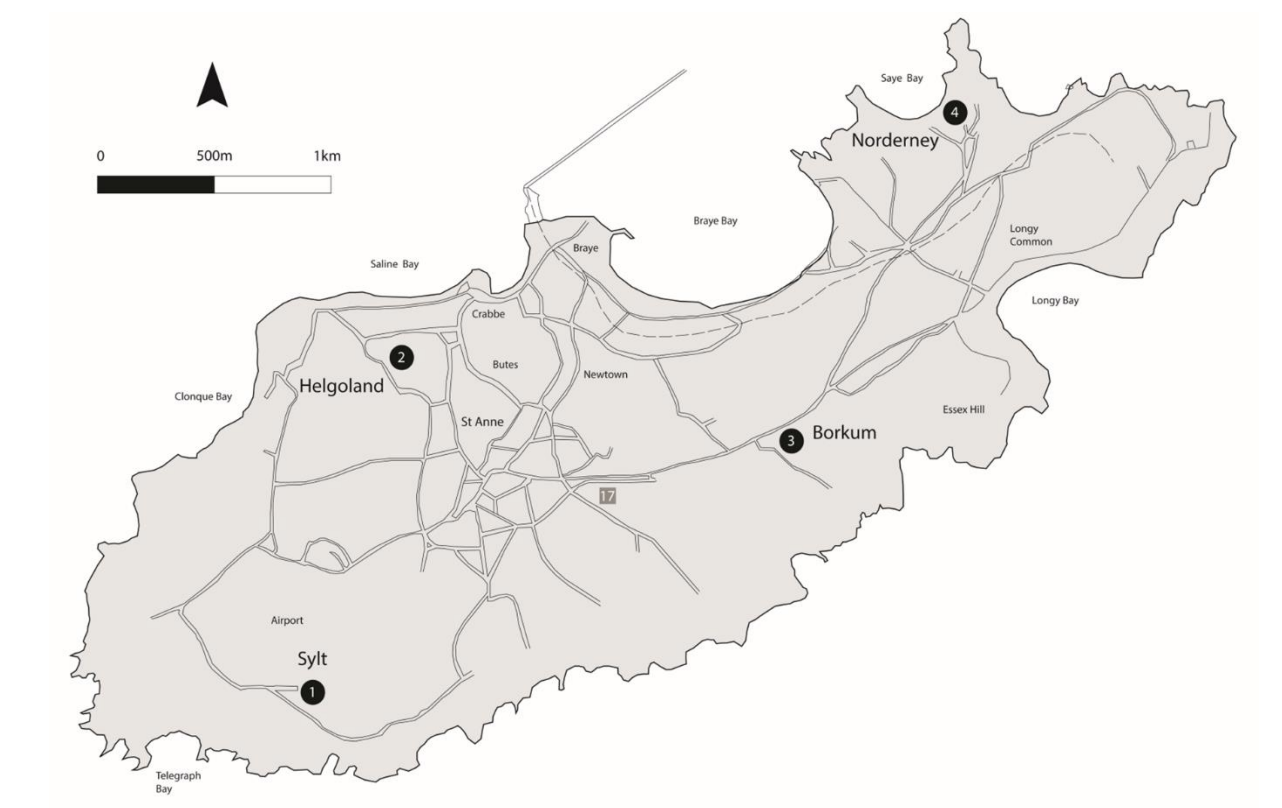


An official inquiry shedding light on the "harrowing" truth of what happened in Alderney during the Nazi occupation has suggested the prisoner of war death toll could exceed 1,000 – more than twice as many as previously thought – but researchers have struck down theories that the set-up was a 'mini-Auschwitz'.
The UK-government commissioned ‘Expert Review’ into Nazi atrocities on British soil is due to be published at 11:00 today, revising the original minimum death toll of 389 calculated in the months after the Channel Islands were liberated in 1945.
But the team behind it says the likely range of deaths in Alderney is between 641 and 1,027 people – and unlikely to have exceeded 1,134 overall.
The review has also put the number of people who were sent to the largely abandoned island between 1940 and 1945 at between 7,608 and 7,812.
Also revealed for the first time today is why many of the perpetrators were never brought to justice.
The British government in 1945 carried out a prisoner swap which handed the case file, involving many Russian citizens, over to the Soviet Union in exchange for German prisoners who had killed British and Commonwealth airmen during the 'Great Escape' from Stalag Luft III in Poland.
The Soviet Union never pursued the case and as a result the number of victims has been a source of speculation and controversy.
Lord Eric Pickles, the UK Special Envoy on Post Holocaust Issues, hopes that the report, compiled by 13 leading academics, will put to bed decades of competing theories over the severity of what happened in Alderney – with some saying nothing happened, and others alleging that tens of thousands of people died.

Pictured: Lord Pickles (far left) with historian and Jurat Colin Partridge OBE (middle), who was the only Alderney-based member of the expert group.
“Alderney housed the most westerly concentration camp in the Third Reich. Prisoners were treated appallingly, and life was cheap, but Alderney did not house a ‘mini-Auschwitz’ – there was no extermination centre on the island. Anyone who claims so has never visited Auschwitz or understood the extent of the Nazi's death factories in eastern Europe,” he said.
“At a time when parts of Europe are seeking to rinse their history through the Holocaust, the British Isles must tell the unvarnished truth. Numbers do matter. It is as much of a Holocaust distortion to exaggerate the number of deaths as it is to underplay the numbers. Exaggeration plays into the hands of Holocaust deniers and undermines the six million dead. The truth can never harm us.”
From 1940, the Nazis arrived and constructed a series of camps and prisons. Labourers as well as prisoners were brought to the island and subjected to criminal treatment.
 Pictured: The main camps on the island.
Pictured: The main camps on the island.
Housed in camps that shared similar traits to those in mainland Europe, these labourers were subject to atrocious living and working conditions, beatings, starvation and, in some cases, executions.
Professor Anthony Glees was brought into the near year-long review after it became clear that the lack of war crimes trials pursued after the war ended was a question that should be addressed. His research has for the first time confirmed this.
In a statement, the States of Alderney President, William Tate, said that the panel had “resolved an important issue which has been the subject of much debate for many years.
“The review makes clear what terrible conditions the people who had been brought to the Island had to endure and how cheap their lives were to the occupying forces.
“As a community, we will never forget the suffering that these poor souls endured and the tragic loss of life, resulting from the callous and inhumane behaviour of the occupying forces."
Chief Rabbi Sir Ephraim Mirvis said that “having an authoritative account of this harrowing element of the island's history is vital".
"It enables us to accurately remember the individuals who so tragically suffered and died on British soil," he said.
Professor Anthony Glees was brought into the near year-long review after it became clear that the lack of war crimes trials pursued after the war ended was a question that needed addressing.
The full report is due to be released at 11:00, with a press conference due to take place at the Imperial War Museum this morning.
Interested parties are also being invited to watch along live – the presentation will be livestreamed on Zoom, while a public screening is being put on in Alderney at the Island Hall for the community. Find more details on how to watch here.
Express will be reporting from the Imperial War Museum today – follow online or on social media for all the latest updates, and sign up to our news email here.
Comments
Comments on this story express the views of the commentator only, not Bailiwick Publishing. We are unable to guarantee the accuracy of any of those comments.